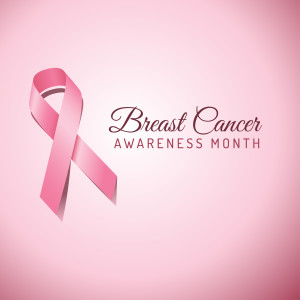Breast Cancer Screening Guidelines
 Last week, actress Julia Louis-Dreyfus announced she has breast cancer in a post on her official Twitter account saying, “1 in 8 women get breast cancer. Today, I’m the one”.
Last week, actress Julia Louis-Dreyfus announced she has breast cancer in a post on her official Twitter account saying, “1 in 8 women get breast cancer. Today, I’m the one”.
According to the National Breast Cancer Foundation, one in eight women in the United States will be diagnosed with breast cancer in their lifetimes. While we have made significant strides in breast cancer treatment options, the safest way to protect yourself from this deadly disease is through awareness and early detection. As we spend the month of October wearing pink ribbons and reflecting on those we’ve lost, and those who have persevered, take the time to familiarize yourself with the latest breast cancer screening guidelines. By following a regular routine of administering self-exams, and receiving recommended screenings from your OBGYN, you will put yourself in the best position to help us continue the fight against breast cancer.
Breast Cancer Screening Guidelines
According to the American Cancer Society, the frequency with which women should obtain a breast cancer screenings from their OBGYN is dependent upon age. More specifically:
- Women ages 40 to 44 are recommended to receive a mammogram annually if desired.
- Women ages 45 to 54 are recommended to receive a mammogram annually.
- Women 55 and older are recommended to receive a mammogram every two years but may continue to receive annual screenings if desired.
Regular Self-Exams
In addition to mammography screenings, women should also perform routine self-breast exams. Regular self-examinations help women ensure they are familiar with their breasts so that if any abnormality develops, they can identify the change and make an appointment to be examined by a doctor.
Family History
Women with a personal, or a family history of breast cancer are recommended to receive more frequent screenings. If your mother, sister(s), or grandmother(s) have been diagnosed with breast cancer, talk to your OBGYN. He/she will help you determine when to start receiving regular mammography screenings, and whether or not an MRI is also advisable to test for abnormalities.
Other Risk Factors
In addition to your family history, your doctor will need to have an understanding of other factors that could increase your risk of breast cancer and that may impact when you should begin receiving breast cancer screenings, and with what frequency. Such risk factors may include:
- Your age. A woman’s risk of a breast cancer diagnosis increases with age, particularly up until age 50.
- Childbearing history. The older a woman is when she has her first child, the greater her risk of developing breast cancer in her lifetime. Women who never have children are also at a greater risk of developing breast cancer.
- Menstruation history. Women are at a higher risk of breast cancer if they menstruated for the first time before age 12 or if they go through menopause after age 55.
- Genetic factors. Women with a mutation in the BRCA1 or BRCA2 genes are at a higher risk of developing breast cancer.
If you have any questions or concerns regarding your personal risk of breast cancer, talk to your OBGYN. He or she will be able to discuss your personal risk factors and will help you to determine a routine screening frequency plan that is right for you.
